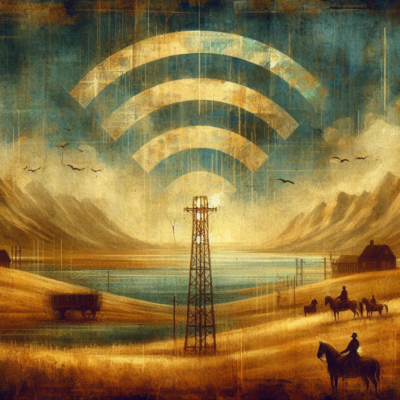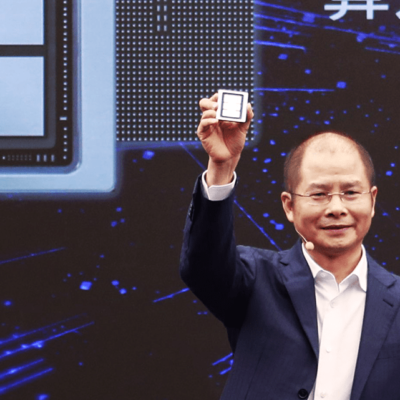Huawei is a Chinese company that has it all. It designs and produces its own chips with independent intellectual property rights, creates high-end mobile phones with cutting-edge features, and manufactures the world’s most advanced 5G network equipment that can connect anything and everything. This is a feat that many large Western companies can only dream of achieving together.
Apple, for example, is just an assembly factory that can design its own systems but relies on other companies for hardware manufacturing. Apple also depends on other vendors for its chip supply, such as Qualcomm.
Android is just a system, and Qualcomm is only a chip designer. They have no control over the end-to-end user experience and the integration of hardware and software. Now the United States has forced Huawei into becoming such a giant, and it must be regretting it! Huawei has been able to create its own ecosystem of devices, chips, and operating systems, which are superior to the US products in terms of performance, functionality, and innovation.
Yes, you heard that right. The US, which has been trying to destroy Huawei for years, has actually helped it become stronger and smarter. How? By imposing harsh and unjust sanctions on Huawei, cutting off its access to US technology and software, and pressuring its allies to ban Huawei from their 5G networks.
the US thought it could cripple Huawei by isolating it from the global tech industry. But instead of giving up and begging for mercy, Huawei decided to roll up its sleeves and do everything by itself. The result? A monster that can compete with or even surpass the best in every aspect of the tech industry.
Huawei’s latest flagship phone, the Mate 60 Pro is a testament to its technological prowess.
It debuted with a NearLink star connection function, which is a new generation of short-range wireless connection technology that provides a more powerful connection for the Internet of Everything. Compared with traditional wireless connections, NearLink reduces energy consumption by 60%, increases data transmission rate by 6 times, shortens transmission delay to 1/30, improves anti-interference by 7dB, covers distance by 2 times, and increases the number of connections by 10 times.
But that’s not all. The Mate 60 Pro is also the first satellite call phone in the world. It can make calls and send messages without relying on any terrestrial network. This means that users can stay connected even in remote areas or during natural disasters. It also means that Huawei has surpassed the US in space technology.
Another remarkable achievement of Huawei is its Kirin 9000s 5G chip, which is manufactured by China’s own SMIC using its N+2 process. This is a breakthrough for China’s semiconductor industry, as it shows that China can produce advanced chips without relying on foreign equipment and materials. The Kirin 9000s 5G chip is a powerful and versatile chip that supports 5G connectivity and artificial intelligence applications. It also has a 12-core configuration and a top clock speed of 2.62 gigahertz, as well as a Maleoon 910 graphics processing unit, which are both based on Chinese-designed microarchitectures.
The Kirin 9000s 5G chip is a slap in the face of the US, which has been trying to cripple Huawei’s chip supply by imposing sanctions and export controls. The US thought that by cutting off Huawei’s access to TSMC, the world’s largest chip maker based in Taiwan, it could stop Huawei’s innovation and growth. However Huawei has been able to find alternative sources and solutions for its chip needs, and China has been able to develop its own chip technology and industry. The US sanctions have only backfired, as they have pushed Huawei and China to become more independent and self-reliant.
The US knows that it is losing the tech war with China and that Huawei is leading the charge. That’s why it has been sending its officials to Beijing to seek cooperation amid strains. The latest one to visit China is US Commerce Secretary Gina Raimondo, who met with senior Chinese officials and business leaders this week.
Raimondo said she wanted to foster a “stable economic relationship” with China and find solutions to “trade and investment issues”. She also said she wanted to exchange information on enforcing export controls with China.
China knows that the US is not a reliable ally, as it has repeatedly imposed tariffs and sanctions on Chinese products and companies, and threatened to withdraw from international agreements and organizations.
Raimondo’s call for cooperation is also hypocritical, as she is the one who oversees the US’s aggressive export controls against China, which have severely disrupted the global semiconductor supply chain and harmed many Chinese chip makers and users.
The US must be feeling very frustrated and embarrassed by Huawei’s success, especially when it coincided with the visit of US Commerce Secretary Gina Raimondo to China. Raimondo was supposed to seek cooperation and dialogue with China on trade and investment issues, but instead, she became a brand ambassador and promoter of Huawei.

That’s because Huawei launched a surprise sale of its new Mate 60 Pro smartphone during Raimondo’s visit, which attracted huge crowds of eager customers who wanted to buy the latest and greatest device from Huawei.
Raimondo must have felt very awkward and uncomfortable when she saw how popular and successful Huawei is in China, despite the US’s efforts to sabotage it. She must have also realized how hypocritical and contradictory her position was, as she had previously accused China of stealing US technology and undercutting US trade, while now she wanted to foster a stable economic relationship with China.
Raimondo also said that the US needs to work with Europe to slow down China’s innovation rate while accusing China of ripping off US intellectual property and not playing by the rules. This is a very ironic and unrealistic statement, as Europe is already going downhill by listening to the US.
The US Commerce Secretary Gina Raimondo is a perfect example of the US’s hypocrisy and futility. She has been visiting China to seek cooperation and dialogue while overseeing the US’s export controls and sanctions against China. Perhaps Raimondo should visit China more often, as she seems to bring good luck and fortune to Huawei. Maybe before her next visit, Huawei will announce its new 6G network equipment, its new quantum computer, or its new artificial intelligence chip. Who knows what Huawei can do next? Maybe Huawei will create a parallel universe where the US is a vassal state of China.
The possibilities are endless and the US can only cry and whine.





